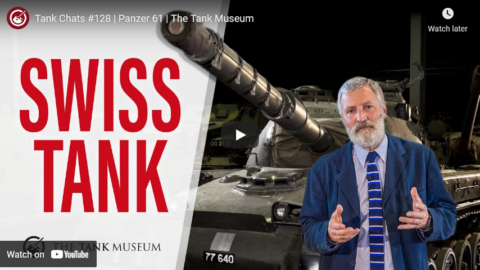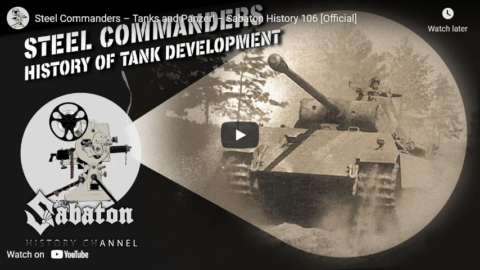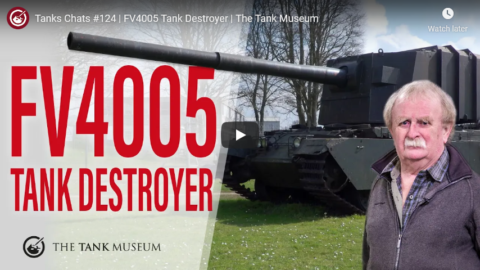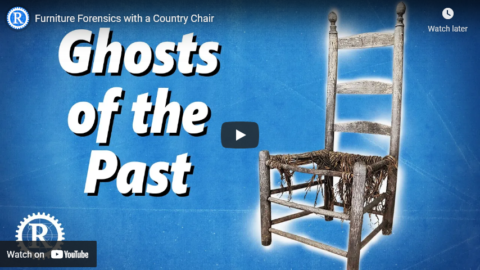Forgotten Weapons
Published 9 Aug 2016http://www.patreon.com/ForgottenWeapons
The French FAMAS was one of the first bullpup rifles to be adopted and built in large numbers by a military power. It was adopted by France in 1978 at right about the same time as the Steyr AUG was being adopted by the Austrian military. Bullpup rifles offered a short overall length without sacrificing barrel length, an advantage that seemed quite valuable for troops who were to spend significant amounts of time in vehicles, where space is at a premium. In French service, the FAMAS was also made the formal replacement for both the MAS-49/56 rifle and the MAT-49 submachine gun, thanks to its compact nature.
The FAMAS is interesting mechanically, as it is one of very few production delayed-blowback rifle designs (the other common one being the CETME/HK series). The FAMAS uses a lever-delaying system, which allows a very simple bolt and action mechanism. The F1 model (adopted by the French Army and still in use today, making up the bulk of FAMAS production) has a 1:12″ twist to its rifling, effectively limiting it to 55 grain projectiles — and it also requires steel-cased ammunition to run reliably. The G2 variant (adopted in 1995 by the French Navy) changed to a 1:9″ twist, introduced a full-hand trigger guard, and also uses NATO standard AR15 magazines instead of the proprietary 25-round magazine of the F1.
In the late 1980s a small number of semiauto FAMAS rifles were made by St Etienne and imported into the US by Century. Most people say 100-125 rifles, although serial number suggest this may have actually been 225-250 rifles. Regardless, they are quite scarce and expensive today.
October 19, 2021
Semiauto FAMAS F1 Rifle
October 14, 2021
Tank Chats #128 | Panzer 61 | The Tank Museum
The Tank Museum
Published 4 Jun 2021Curator David Willey examines one of Switzerland’s first indigenously designed and produced tanks, the Panzer 61, put into service during the Cold War.
Support the work of The Tank Museum on Patreon: ► https://www.patreon.com/tankmuseum
Visit The Tank Museum SHOP & become a Friend: ►tankmuseumshop.orgTwitter: ► https://twitter.com/TankMuseum
Instagram: ► https://www.instagram.com/tankmuseum/
#tankmuseum #tanks
October 10, 2021
Book Review: The Guns of John Moses Browning, by Nathan Gorenstein
Forgotten Weapons
Published 24 Jun 2021http://www.patreon.com/ForgottenWeapons
https://www.floatplane.com/channel/Fo…
Cool Forgotten Weapons merch! http://shop.forgottenweapons.com
John Moses Browning is, without argument, the greatest firearms designer in history. While we have had many brilliant designers who had their names forever connected to guns (Maxim, Luger, Kalashnikov, …), Browning invented whole *categories* of firearms. Gorenstein’s new book The Guns of John Moses Browning is a welcome biography of the man, giving great insight into Browning’s life and work. The book is well researched, well written, and thoroughly engaging. It is also worth noting that Gorenstein is himself a competitive shooter, and understands the world that Browning operated in.
I think my back-cover blurb for the book (for which I received no compensation; full disclosure) sums it up well:
Following Browning from his birth in rural Utah to his death in urban Belgium, we see how a changing world shaped his inventions and how, in turn, his inventions shaped a changing world.
Browning began in the last years of the Wild West inventing lever action rifles, then became a major part of the blossoming of the automatic pistol, then invented the semiauto shotgun before designing the modern machine guns that become iconic to the United States’ involvement in two world wars. It is a tremendous story, and Gorenstein’s book lays it all out for the reader.
Available from Amazon here:
https://amzn.to/355eMxeContact:
Forgotten Weapons
6281 N. Oracle 36270
Tucson, AZ 85740
October 7, 2021
Tank Chats #127 | Thornycroft Bison Concrete Armoured Lorry | The Tank Museum
The Tank Museum
Published 28 May 2021David Fletcher looks at the eccentric Thornycroft Bison, a concrete armoured lorry, created by the British to defend airfields in the early years of the Second World War.
Support the work of The Tank Museum on Patreon: ► https://www.patreon.com/tankmuseum
Visit The Tank Museum SHOP & become a Friend: ► tankmuseumshop.org
Twitter: ► https://twitter.com/TankMuseum
Instagram: ► https://www.instagram.com/tankmuseum/
#tankmuseum #tanks
October 3, 2021
The Triumph Spitfire Story
Big Car old account
Published 8 Mar 2019To help me continue producing great content, please consider supporting me: https://www.patreon.com/bigcar
Help support my channel through these Amazon US affiliate links:
Triumph Spitfire t-shirt: https://amzn.to/2KdY33m
Triumph Spitfire baseball cap: https://amzn.to/2U1SrZF
Triumph sweatshirt: https://amzn.to/2KgGIXq
Triumph Spitfire model car: https://amzn.to/2U4gnvo
Triumph keyfob: https://amzn.to/2YTeKV4
Triumph Spitfire metal sign: https://amzn.to/2U2u4ejThe Spitfire is a beautiful automobile, a thing of wonder penned by an Italian genius, but it almost never happened. If not for a chance find in the dusty corner of a factory it would have remained merely a “could have been”. But Triumph produced a car that still inspires new creations today and has a strong and loyal fan base around the world, nearly sixty years since it burst on the scene.
#TriumphSpitfire
September 25, 2021
“Steel Commanders” – Tanks and Panzer! – Sabaton History 106 [Official]
Sabaton History
Published 24 Sep 2021From the first landships of the Great War to the massive armor-battles of Prokhorovka and El-Alamein — the introduction of the tank to the battlefield had changed warfare forever. Impregnable to small-arms fire, they crushed barbed-wire and field fortifications underneath their tracks, paving the way for the infantry’s advance. In independent formations they surged forward at the head of the offensive, outmaneuvering the enemy’s defenses and wreaking havoc in their lines. From the Mark V to the T-34, from the Tiger to the Centurion — the evolution of armor is the history of Steel Commanders.
Support Sabaton History on Patreon: https://www.patreon.com/sabatonhistory
Watch the Official Music Video of “Steel Commanders” here: https://www.youtube.com/watch?v=peTCe…
Listen to Sabaton on Spotify: http://smarturl.it/SabatonSpotify
Official Sabaton Merchandise Shop: http://bit.ly/SabatonOfficialShopHosted by: Indy Neidell
Written by: Markus Linke and Indy Neidell
Directed by: Astrid Deinhard and Wieke Kapteijns
Produced by: Pär Sundström, Astrid Deinhard and Spartacus Olsson
Creative Producer: Maria Kyhle
Executive Producers: Pär Sundström, Joakim Brodén, Tomas Sunmo, Indy Neidell, Astrid Deinhard, and Spartacus Olsson
Community Manager: Maria Kyhle
Post-Production Director: Wieke Kapteijns
Editor: Iryna Dulka
Sound Editor: Marek Kaminski
Archive: Reuters/Screenocean – https://www.screenocean.com
Sources:
– IWM E 18376, IWM 357, Q 9249, IWM 1198, IWM 130-09+10, Q 107828, IWM 508-70, KID 109, UKY 502, E 7070, H 37169, MH4107
– wall by mara julieta G., Tree by Joni Ramadhan; from the Noun Project
All music by: SabatonAn OnLion Entertainment GmbH and Raging Beaver Publishing AB co-Production.
© Raging Beaver Publishing AB, 2019 – all rights reserved.
Webley 1913 Semiauto Pistol: History and Disassembly
Forgotten Weapons
Published 25 May 2017William Whiting and the Webley company had high hopes for their self-loading pistols being adopted by the British military — but they never got the success they were hoping for.
After the poor performance of the Webley 1904 (https://www.youtube.com/watch?v=-hT38…) at trials, William Whiting decided to make sure his next attempt would be fully developed before he put it in the hands of the military. He did very well at that too, as the gun which would become the Model 1913 Webley did very well from its very first military tests. The Royal Navy was, in fact, quite enthusiastic about it, although the Army was not. The Navy would ultimately adopt the gun and purchase about 8,000 of them during World War One, while the Army acquired just a couple hundred and preferred to stick to its revolvers.
Thanks to Mike Carrick of Arms Heritage magazine for loaning me these pistols to bring to you!
Cool Forgotten Weapons merchandise! http://shop.bbtv.com/collections/forg…
http://www.patreon.com/ForgottenWeapons
If you enjoy Forgotten Weapons, check out its sister channel, InRangeTV! http://www.youtube.com/InRangeTVShow
September 19, 2021
Chassepot: Best of the Needle Rifles
Forgotten Weapons
Published 3 May 2019The Model 1866 Chassepot was France’s first military cartridge-firing rifle. It used a self-contained paper cartridge on the same basic principle as the Prussian 1841 Dreyse rifle, but was a substantial improvement on that system. The Chassepot fired an 11mm bullet at about 1350 fps (410 m/s), which was substantially higher velocity than the Dreyse. It was more accurate and had a substantially longer effective range. The French would produce about 1.5 million Chassepot rifles, most of them before the Franco-Prussian War.
Despite the quality of the Chassepot rifle, that war would go tremendously badly for the French, with hundreds of thousands of men and arms captured by the Prussians and the new German state being declared in the palace of Versailles. In the aftermath, many German cavalry units would adopt Chassepots for their own use, until the Gewehr 71 was available in carbine form. The French would resume Chassepot production briefly after the war, but would soon transition to a new rifle, the metallic cartridge firing Gras.
http://www.patreon.com/ForgottenWeapons
Cool Forgotten Weapons merch! http://shop.bbtv.com/collections/forg…
Contact:
Forgotten Weapons
PO Box 87647
Tucson, AZ 85754
September 16, 2021
Tanks Chat #124 | FV4005 Tank Destroyer | The Tank Museum
The Tank Museum
Published 23 Apr 2021David Fletcher MBE explores the experimental FV4005, with original turret and 183mm gun fitted on a Centurion Mark 12 hull.
Support the work of The Tank Museum on Patreon: ► https://www.patreon.com/tankmuseum
Visit The Tank Museum SHOP & become a Friend: ► tankmuseumshop.orgTwitter: ► https://twitter.com/TankMuseum
Instagram: ► https://www.instagram.com/tankmuseum/
#tankmuseum #tanks
QotD: The youthful Utopian
More than half a century ago, I had a friend in junior high school I could never figure out or drum much common sense into. He was quite the dreamer. He loved science fiction. His nickname was “Angus” — derived from the fact that he was rather rotund, and our school was surrounded by farm fields. When we grazed at the same lunch table, he would speculate endlessly about what life on other planets might be like. He was very earnest, and very entertaining.
One day I suggested facetiously that Angus stop speculating and go find out for himself. “Build a spaceship someday and fly to the planet of your choice,” I recommended. To my surprise, he took me seriously.
Some days later, Angus excitedly told me he had it all worked out. He had designed the spaceship and even brought the plans to show me. Then he unfolded a large sheet of brown wrapping paper. There it was — the entire cockpit control panel of the craft that would take Angus to the cosmos. There was a button for everything.
“This is not a plan!” I declared with a laugh. “It’s just a bunch of buttons with labels on them.”
“But it’s all here,” Angus insisted. “I’ve thought of everything — Start, Stop, Land, Take-off, Dodge Asteroids, you name it, everything you need to know.” He even had an all-purpose button to take care of anything unexpected, which he thought was a genius innovation.
What I remember most vividly about this experience was not the fine detail of my friend’s sketch. It was my frustrating inability to convince him he was delusional, that his plan was no plan at all, that as a 14-year-old he wasn’t yet ready for a senior position at NASA. He was what philosopher Eric Hoffer might call a “true believer” — convinced beyond any hope of convincing otherwise that his plan was thorough, perfect, and sure to work.
I lost track of Angus after graduation, but I am quite certain his spaceship never left the ground.
Lawrence W. Reed, “The Dark Side of Paradise: A Brief History of America’s Utopian Experiments in Communal Living”, Foundation for Economic Education, 2021-06-13.
September 14, 2021
Sturmgewehr MP-44 Part II: History & Implementation
Forgotten Weapons
Published 27 Sep 2016Cool Forgotten Weapons Merch! http://shop.bbtv.com/collections/forg…
The Sturmgewehr was the result of a German intermediate cartridge development program that began in the mid-1930s. It was sidelined for a period as the focus of German Ordnance shifted to full-power rifles in 8x57mm with telescopic sights, but as the German fighting in Russia became more desperate, many Ordnance officers realized that the greater firepower offered by the Sturmgewehr concept was one of the few options that might be able to allow depleted German units to effectively hold ground against Russian attacks.
To this end, the guns were issued primarily in the East, with whole companies being equipped in order to focus a maximum amount of firepower, rather than spreading the new rifles piecemeal across all units. Ultimately, of course, this was insufficient to prevent the growing Soviet advance — but for the individual German soldier, an MP-43/44/StG-44 would have been a much more comforting weapon than a Kar98k Mauser!
September 11, 2021
Sturmgewehr MP-44 Part I: Mechanics
Forgotten Weapons
Published 27 Sep 2016The MP-43 (which is mechanically identical to the MP-44 and StG-44; the differences are the subject for another video later) is a tilting bolt rifle with a long stroke gas piston. It was manufactured primarily from complex sheet steel stampings, as a way to minimize the amount of high-quality and thus difficult to acquire steels needed for its construction. The rifle is heavy by today’s standards, but remarkably ergonomic (except for the metal handguard, when heats up quickly). Its sights come right up to the eye when shouldering the rifle, and it disassembles quickly and easily.
It really is one of the best small arms developed during World War II.
September 9, 2021
Furniture Forensics with a Country Chair
Rex Krueger
Published 8 Sep 2021This post-and-rung chair looks like trash, but it’s actually a master-class in green woodwork.
More video and exclusive content: http://www.patreon.com/rexkrueger
See More About Traditional Furniture!: (Scroll Down)Furniture Forensics with a 19th Century Table
Video: https://youtu.be/eLBWSCuzh5QLearn Woodworking by Studying Vintage Furniture
Video: https://youtu.be/d-HB0ZIN_ZoCan you build real furniture with softwood?
Video: https://youtu.be/LW-GtrouKh8———————————————————————-
Build Your Own Furniture!
Build a Mission Bench with Simple Nailed Joinery
Video: https://youtu.be/wy7OR0kXZlc
Get the Plans: https://www.rexkrueger.com/store/xyg2…Simple Table with Hand-Cut Joinery
Part 1: https://youtu.be/EeGtuJCSv6E
Part 2: https://youtu.be/TY-twrQh0Rs
Plans: https://www.rexkrueger.com/store/plan…Make a traditional milking stool. Limited tools. No Bench.
Video: https://youtu.be/vO6lATthAmEThe LEGENDARY Six-Board Chest
Video: https://youtu.be/cBq5DGOChgc
Plans: https://www.rexkrueger.com/store/plan…Early American Cupboard Build
Playlist: https://youtube.com/playlist?list=PLR…
Plans: https://www.rexkrueger.com/store/earl…———————————————————————-
Get My New Book, Everyday Woodworking: https://amzn.to/3uQtdQr
Check out my new site: https://woodworkforhumans.com
———————————————————————-
Sign up for Fabrication First, my FREE newsletter: http://eepurl.com/gRhEVT?
———————————————————————-
Wood Work for Humans Tool List (affiliate):
*Cutting*
Gyokucho Ryoba Saw: https://amzn.to/2Z5Wmda
Dewalt Panel Saw: https://amzn.to/2HJqGmO
Suizan Dozuki Handsaw: https://amzn.to/3abRyXB
(Winner of the affordable dovetail-saw shootout.)
Spear and Jackson Tenon Saw: https://amzn.to/2zykhs6
(Needs tune-up to work well.)
Crown Tenon Saw: https://amzn.to/3l89Dut
(Works out of the box)
Carving Knife: https://amzn.to/2DkbsnM
Narex True Imperial Chisels: https://amzn.to/2EX4xls
(My favorite affordable new chisels.)
Blue-Handled Marples Chisels: https://amzn.to/2tVJARY
(I use these to make the DIY specialty planes, but I also like them for general work.)*Sharpening*
Honing Guide: https://amzn.to/2TaJEZM
Norton Coarse/Fine Oil Stone: https://amzn.to/36seh2m
Natural Arkansas Fine Oil Stone: https://amzn.to/3irDQmq
Green buffing compound: https://amzn.to/2XuUBE2*Marking and Measuring*
Stockman Knife: https://amzn.to/2Pp4bWP
(For marking and the built-in awl).
Speed Square: https://amzn.to/3gSi6jK
Stanley Marking Knife: https://amzn.to/2Ewrxo3
(Excellent, inexpensive marking knife.)
Blue Kreg measuring jig: https://amzn.to/2QTnKYd
Round-head Protractor: https://amzn.to/37fJ6oz*Drilling*
Forstner Bits: https://amzn.to/3jpBgPl
Spade Bits: https://amzn.to/2U5kvML*Work-Holding*
Orange F Clamps: https://amzn.to/2u3tp4X
Screw Clamp: https://amzn.to/3gCa5i8Get my woodturning book: http://www.rexkrueger.com/book
Follow me on Instagram: @rexkrueger
August 26, 2021
Winchester WWII 50 AT rifle
Forgotten Weapons
Published 3 Aug 2016http://www.patreon.com/ForgottenWeapons
David Marshall Williams was hired by the Winchester company in 1939, and would have a hand in a number of major projects during his 10-year stint with the company, although best known for the M1 Carbine. The Carbine was an offshoot of the Winchester G30 and G30M rifles, which would also evolve into the G30R and Winchester Automatic Rifle. Another offshoot using this same basic mechanism was this undesignated .50 BMG semiautomatic antitank rifle developed by Winchester during World War II.
This rifle, like its developmental precursors, uses a two-lug, Garand type rotating bolt and a Williams gas tappet short stroke action. It has a 10-round detachable box magazine.
Although I have not found a testing report, the gun was apparently tested by the Canadian military and performed quite well. It was never purchased or put into serial production, however, most likely because as an antitank rifle the .50 BMG cartridge was not effective by the end of World War II.
August 25, 2021
Tanks Chats #121 | The Cascavel | The Tank Museum
The Tank Museum
Published 2 Apr 2021The Tank Museum’s Curator David Willey presents a Tank Chat on the EE-9 Cascavel, a Brazilian Armoured Car developed during the 1970s, primarily for reconnaissance. David also touches upon the EE-11 Urutu, which shares many of the Cascavel’s components. Join him to find out more.
Support the work of The Tank Museum on Patreon: ► https://www.patreon.com/tankmuseum
Visit The Tank Museum SHOP & become a Friend: ►tankmuseumshop.orgTwitter: ► https://twitter.com/TankMuseum
Instagram: ► https://www.instagram.com/tankmuseum/
#tankmuseum #tanks

















